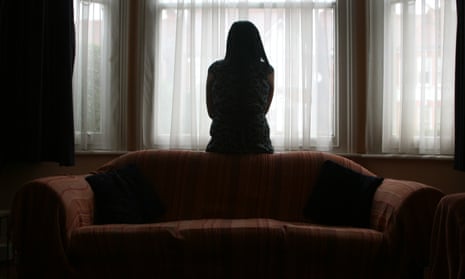Almost one in seven young Australians believe a man would be justified in raping a woman if she initiated sex but changed her mind, while almost one-quarter of young men think women find it flattering to be persistently pursued, even if they are not interested.
The findings from the National Community Attitudes Towards Violence Against Women Survey (NCAS) youth report released on Wednesday reveal that while young people increasingly believe in equality in the workplace and in leadership, they are less likely to recognise sexism, coercion or other problematic behaviours in their own relationships.
Of 1,761 people aged between 16 and 24 surveyed, 43% supported the statement: “I think it’s natural for a man to want to appear in control of his partner in front of his male friends.”
The survey, commissioned by Australia’s National Research Organisation for Women and Safety (Anrows) and VicHealth, is conducted every four years. The latest analysis comes from data collected in 2017.
While the proportion of young people agreeing that men make better political leaders than women declined from 24% in 2013 to 13% in 2017, almost one in three young people still believe that women prefer a man to be in charge of a relationship. Young men (36%) were more likely to support this statement than young women (26%).
More than one in five young people (22%) believe there is no harm in making sexist jokes about women when among their male friends, and young men (30%) are more than two times as likely than young women to agree with this statement (14%). While attitudes towards women in leadership had improved, young men (17%) were more likely than young women (8%) to say men make more capable bosses than women.
“A large proportion of young people support attitudes that deny gender inequality is a problem,” the report found. “Young men are substantially more likely to express these attitudes than young women across all questions in this theme.” For example, 45% of young people believe that many women exaggerate gender inequality in Australia, with young men (52%) more likely to hold this belief than young women (37%).
Nearly three in five young men believe that many women mistakenly interpret innocent remarks or acts as being sexist. Meanwhile, 37% agreed that women make up or exaggerate claims of violence to secure advantage in custody battles. The same proportion agreed with the statement “It is common for sexual assault accusations to be used as a way of getting back at men”, with young men (45%) more likely to agree than young women (29%).
Lead researcher Dr Anastasia Powell from RMIT University said the good news was that young people’s understanding of the nature of violence against women had improved over time, and so had their support for gender equality.
But an area where understanding has backtracked was around the unequal nature of domestic and family violence, she said.
“A lot of young people believe it’s a gender-neutral issue where men and women are equally using violence, but we know from police statistics and surveys this is largely a problem of men’s violence against women.”
Also concerning was that 20% of young men did not understand that repeatedly keeping track of a partner’s location was a form of violence against women, she said, while 11% did not think stalking is a form of violence.
“We must continue to invest in prevention strategies to continue to make ground on these attitudes and to make this the generation that ends violence against women,” Powell said.
The principal program officer for mental wellbeing at VicHealth, Renee Imbesi, said: “We can’t sit back just because women’s role in public life has improved.
“Many people still hold outdated views of women in the home, and it is clear that many young men and women are going into relationships with different expectations around things like gender roles and consent.
“We need to get the message out there that control in relationships can be a precursor to violence. The other aspect is if young people see more respect and equality in their own families and workplaces, then they will start to see that as the norm.
“If we don’t change our world to make it more gender equal, we can’t expect young people to be on board with equality.”
